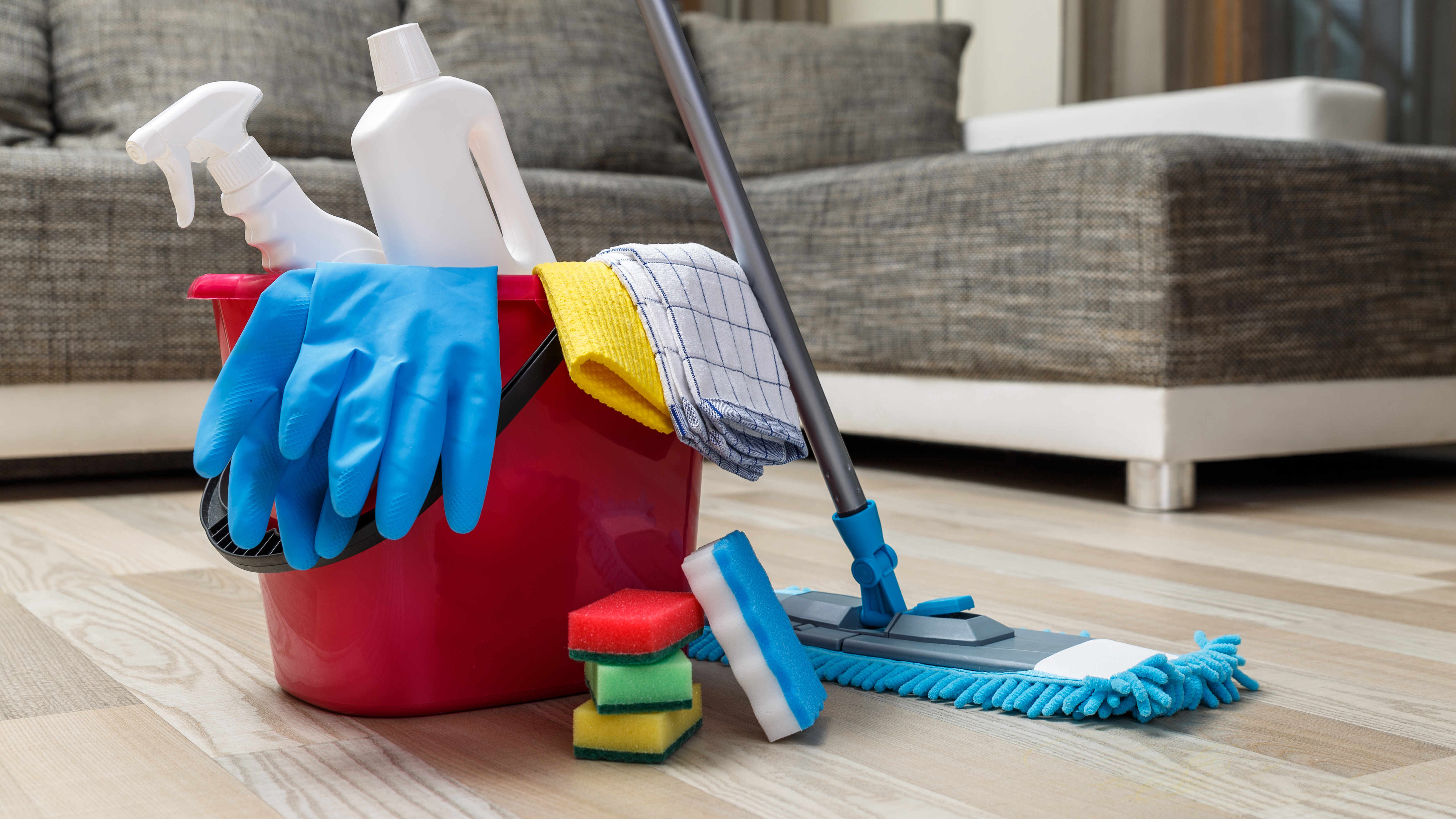7 things you should never, ever clean with water in your home
Avoid cleaning these things with water at all costs
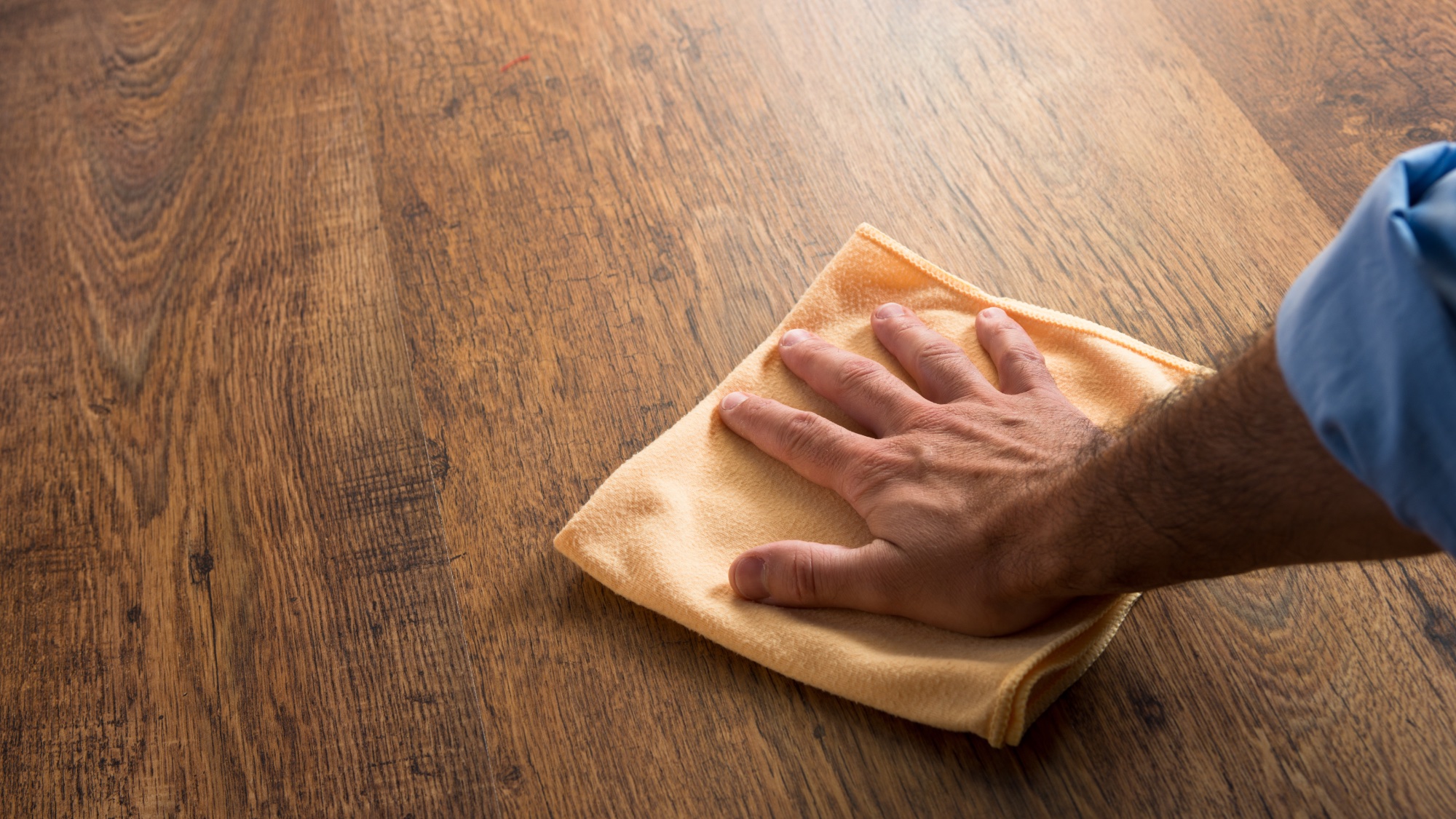
Nothing can beat the cleansing powers of water. After all, it's a universal go-to solution for washing and rinsing away grime, dirt and marks. But, did you know there are things you should never clean with water?
In fact, cleaning these common household items with water will likely cause more harm than good. It can either leave behind unattractive spots and stains, or worse, cause permanent damage — which will cost you in the long run. So before you fill up your bucket, or soak a cloth, beware of these surprising things you should never clean with water in your home.
Plus, these are 7 places to never use WD-40 — you’ll be surprised.
1. Hardwood and laminate flooring
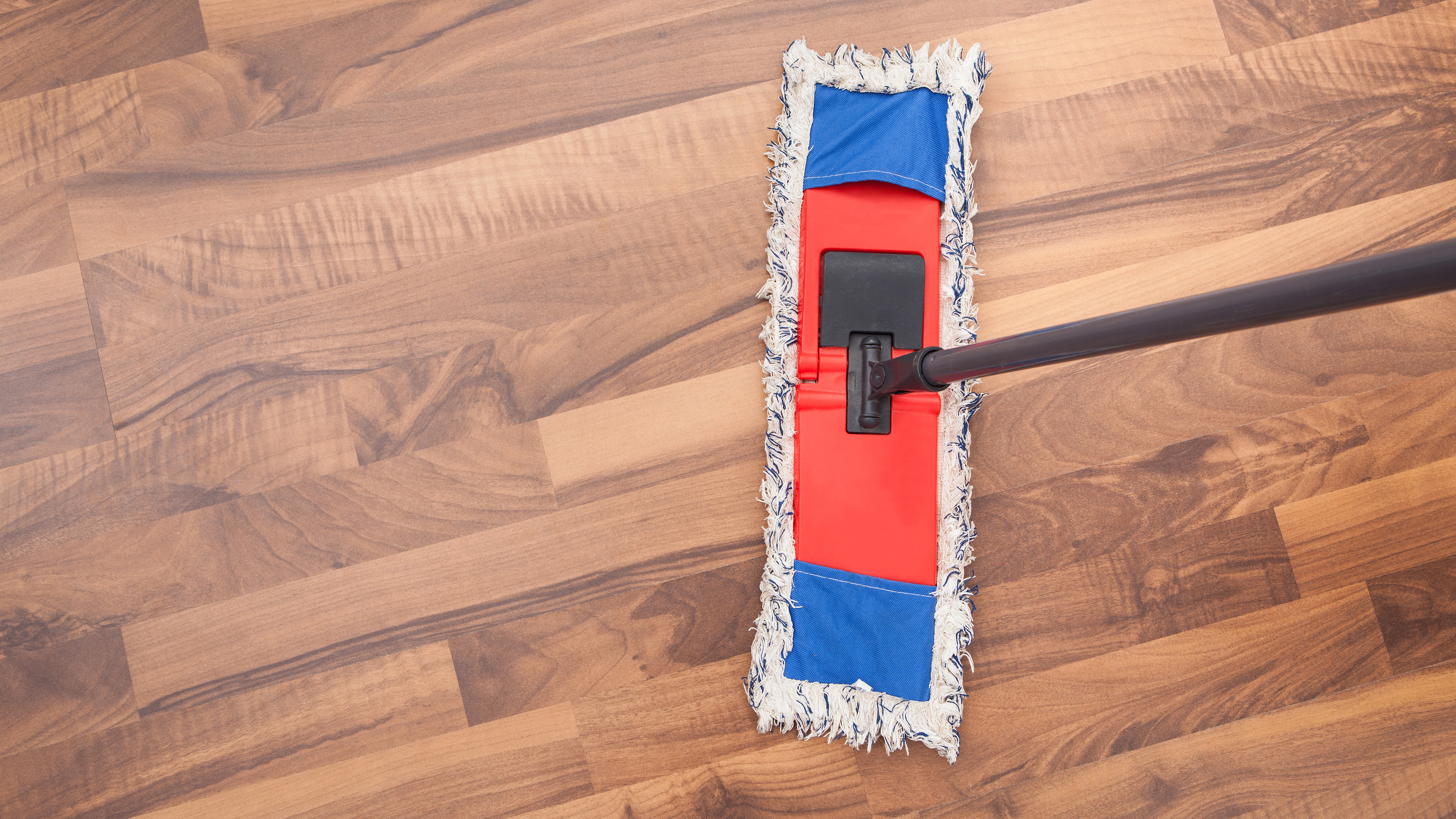
Although it makes sense to grab the mop and bucket to clean our flooring, think again! If you regularly soak hardwood floors, the water can seep into the wood, wearing away the protective sealant. This will inevitably cause it to warp, swell or become discolored over time. Not only will this damage the quality of the flooring, but ruin the overall aesthetic of the room.
It’s always best to use a specific hardwood floor cleaner such as Rejuvenate Professional Wood Floor Restorer and Polish ($21, Amazon) to protect your flooring. If you must use water however, ensure the mop is just damp, not sopping wet and never let water sit on the surface.
The same applies for cleaning wooden furniture around the home. Instead, regularly dust your furniture with a microfiber cloth, and use a quality furniture polish or oil.
You might also want to check out how to clean hardwood floors without damaging them, and don’t let a steam mop damage your floors, which is what happened to our Homes writer.
Get instant access to breaking news, the hottest reviews, great deals and helpful tips.
2. Gas stovetops
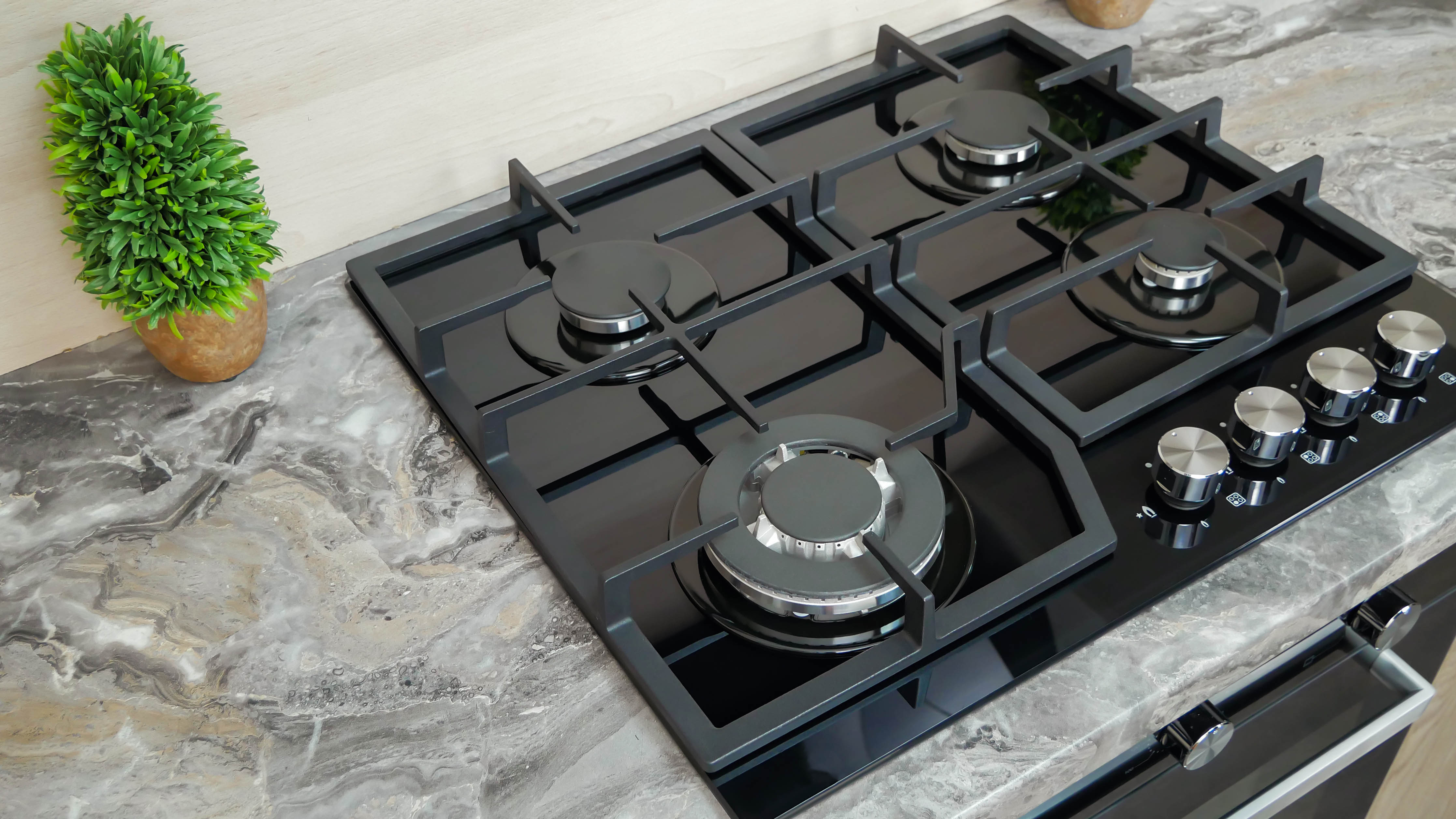
It may seem quick to clean up stains from your gas stovetop with water, however, this is not recommended. The igniters on your gas range are extremely sensitive to water, and once these get wet, will not turn off when activated. As a result, the igniter will continue clicking, and will only resolve itself once the igniter dries out. In addition, cleaning your gas range burners with water can permanently damage the coat.
That’s why it’s advisable to never spray a product directly onto your gas burners when cleaning a gas stovetop. Instead, spray lightly onto your cleaning cloth before wiping down the stovetop.
If you have an electric cooker instead, check out how to clean a glass stove. If you want to keep the glass looking pristine, you'll also want to read how to prevent scratches on your glass stove.
3. Silver and brass
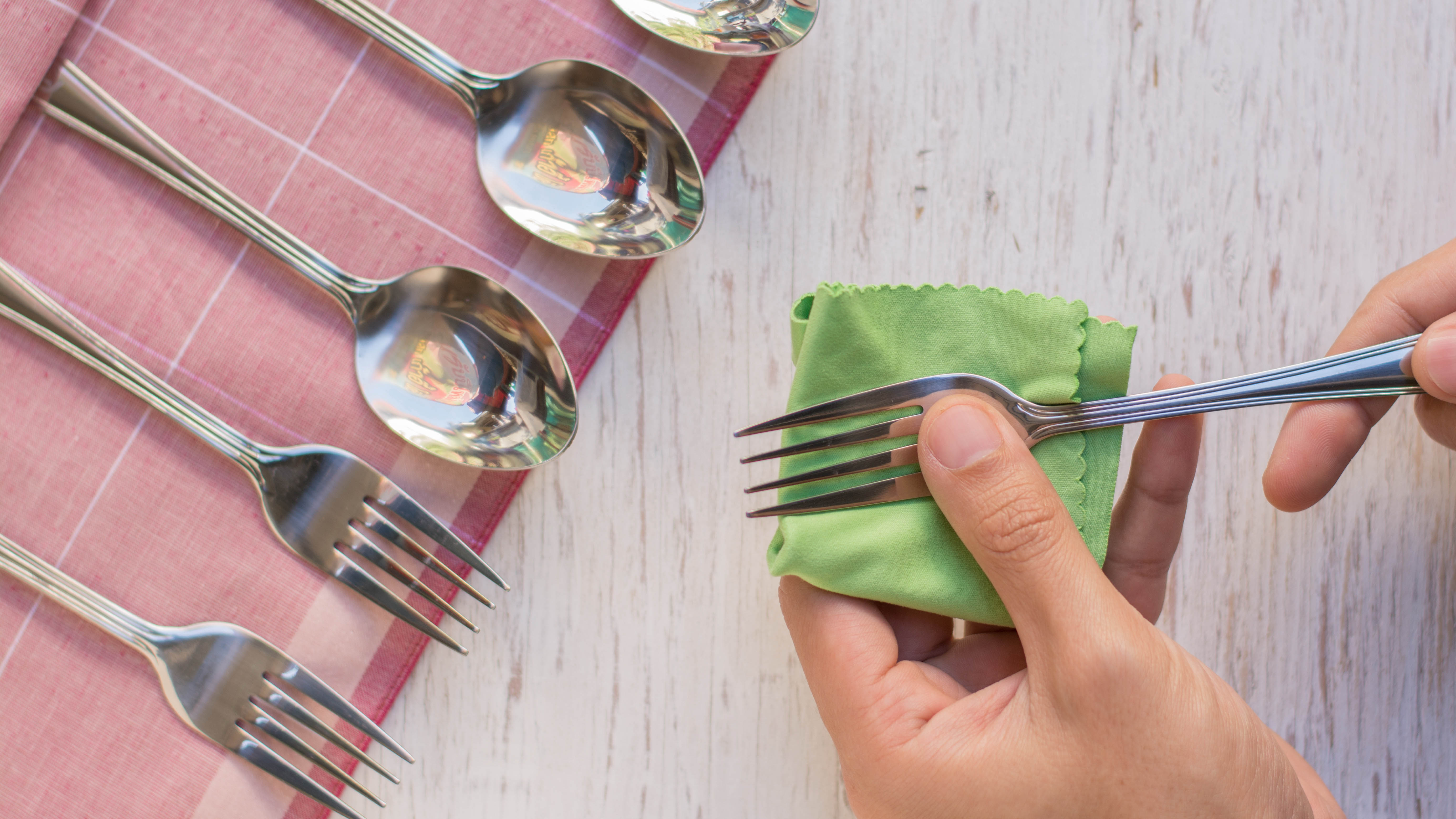
Be it your silver jewellery, cutlery or brass accessories, avoid using water to keep these spotless. In fact, water will just do the opposite, and lead to tarnish. This is mainly because water will remove the protective lacquer or sealant used to treat most brass and silver items. What’s more, if you try to clean the tarnish stains with water, this will only create more tarnish!
It’s always best to learn how to clean silver or brass with a specified polish to protect, and restore its shine.
4. Computer and phone screens
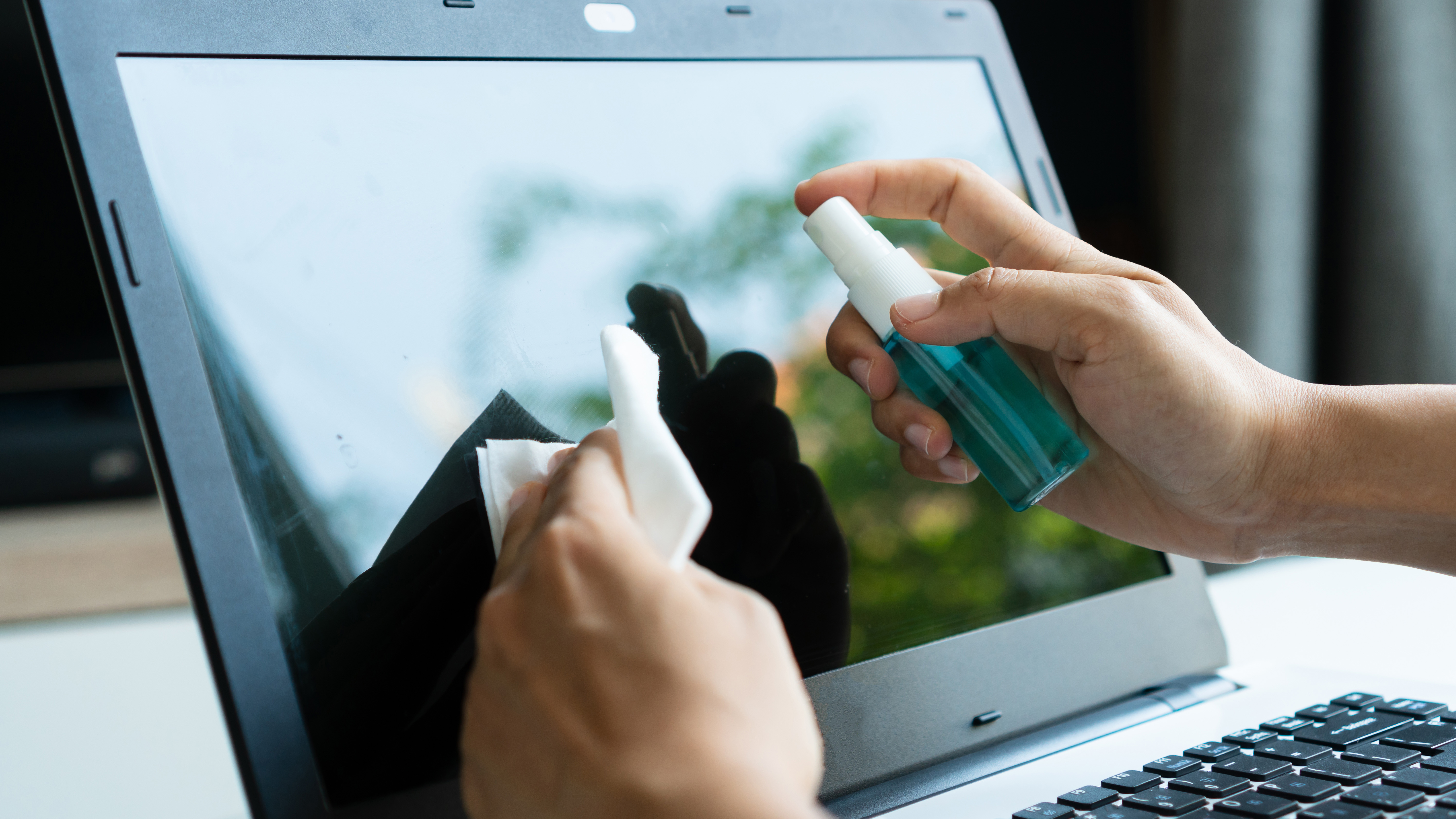
While it might be tempting to use water to remove dirt or marks from a grimy computer or phone screen, it’s a bad idea. First, water and electricity do not mix, and this can permanently damage sensitive components inside the device. The same also applies to any electronic items around the home including the TV, remote controls, and gaming consoles.
Instead, use soft microfiber cloths to wipe away any dust particles or dirt, when cleaning a computer screen properly. You can also buy specially formulated cleaners such as Eveo Screen Cleaner Spray ($20, Amazon) for spotless screens. Also, never spray any liquid cleaners directly onto electronics to avoid damage. The last thing you need is to spend more money on replacement gadgets.
Now that your screen is sparkling clean, check out our other PC cleaning guides, including how to clean a keyboard and how to clean a mechanical keyboard.
5. Silk
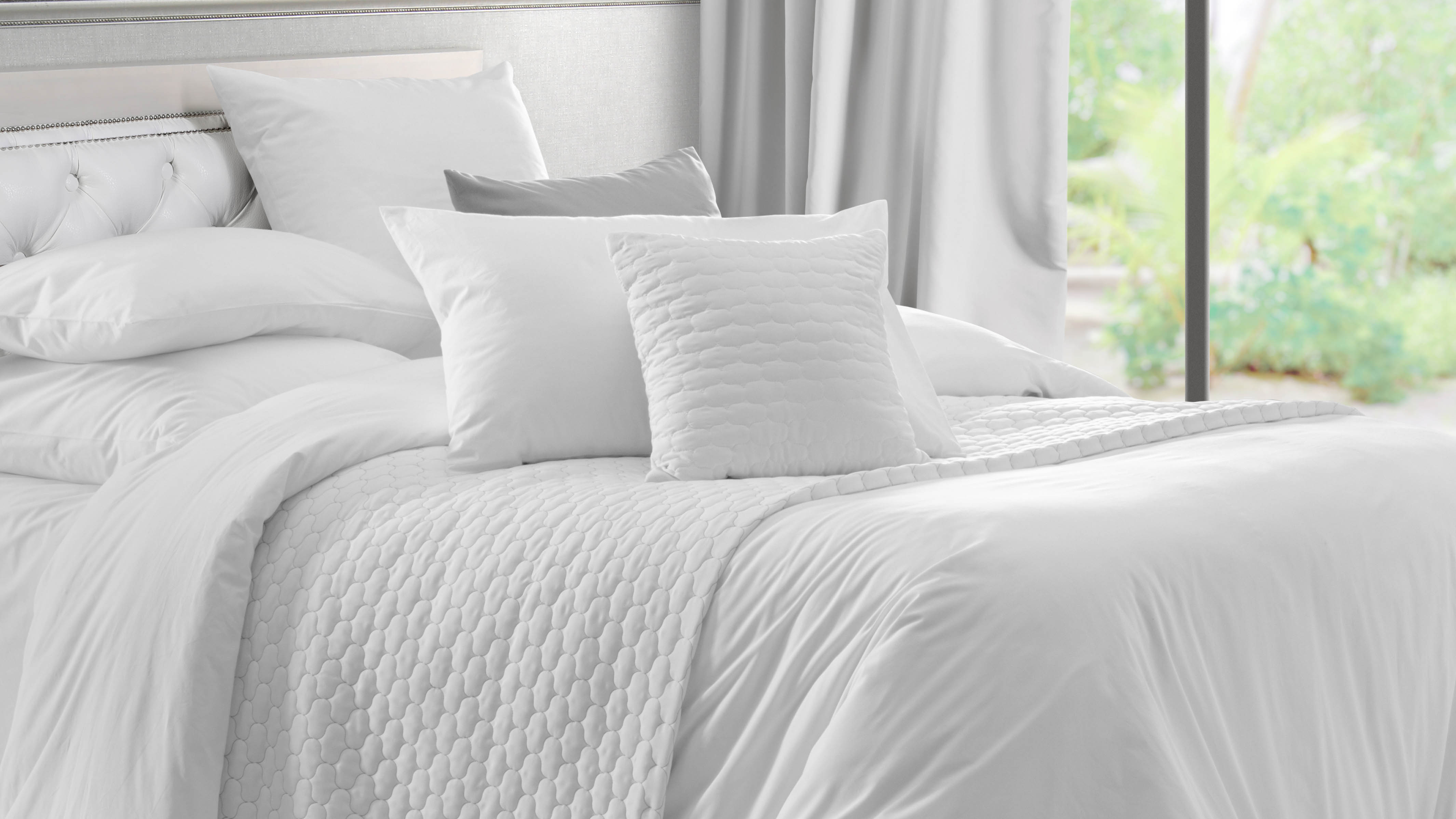
Whether it’s a stain on your favorite silk shirt, sheets or on cushion covers, avoid using water to scrub it clean. Even though some silk items are deemed ‘washable’, using water can actually lead to water spots, shrinkage or permanent discoloration to the fabric.
Before cleaning, it’s important to read the care label instructions, and use a mild soap that is specifically designed for delicate fabrics. It’s always best to spot-test a product first on an inconspicuous area, to ensure it’s suitable for your silk item. However, if in doubt, take it to a dry cleaner, and get expert advice.
6. Velvet, velour or suede

Similarly, cleaning a velvet sofa, soft furnishings or suede shoes can often be challenging. However, avoid using water to wash these delicate fabrics. Not only can it leave spots, marks and stains, but can also cause the fabric to shrink and pill.
If you want to keep these soft, fuzzy fabrics spotless, vacuum them often, and use a soft brush to remove surface dirt. For removing deep-set stains, opt for a specialized cleaner suitable for the fabric. An upholstery cleaner like this Chemical Guys, Carpet & Upholstery Stain & Spot Remover Bundle ($15, Amazon), is ideal for removing stains safely.
7. Marble or stone countertops
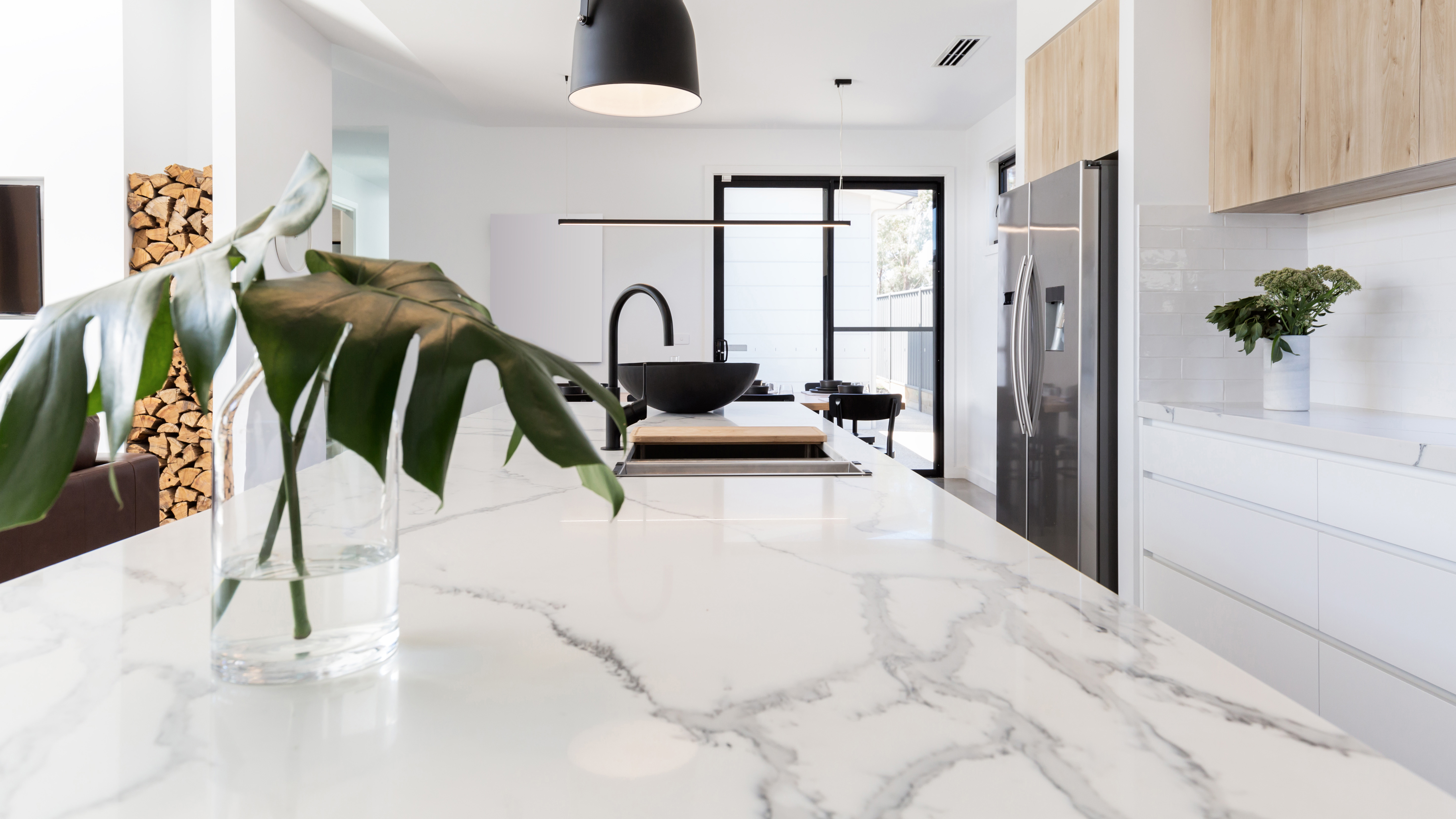
It’s very easy for our kitchen countertops to have messy spills or stains on the surface. However, if you have marble or stone countertops, never use water to clean it. These are porous materials that can be damaged by water, and remove the protective sealant. Once this seal gets removed or worn, this will make it prone to stains, scratches and could make your glossy countertops appear dull and lackluster. In addition, there is a risk of damaging any grout of caulking along the wall.
Instead, use a soft microfiber cloth and a mild cleaner or dish soap to clean marble or stone countertops. Avoid using abrasive sponges, and never use a Magic Eraser to clean delicate surfaces. High-quality kitchen countertops are costly, so you don’t want to end up scratching or risking permanent damage.
Other things you should never clean with water
Here are a few more items that you shouldn't clean with water; instead, follow the manufacturer's recommendations if they become dirty.
- Musical instruments
- Cameras
- Light fixtures
- Leather
- Contact lenses
More from Tom's Guide
Looking for more cleaning tips? Check out these 7 surprising things you can clean with a Magic Eraser, and 9 clever ways you can clean with salt.
Beware of these 7 things you should never clean with bleach and 7 things you should never clean with white vinegar to avoid damage.

As the Homes Content Editor, Cynthia Lawrence covers all things homes, interior decorating, and garden-related. She has a wealth of editorial experience testing the latest, ‘must-have’ home appliances, writing buying guides and the handy ‘how to’ features.
Her work has been published in various titles including, T3, Top Ten Reviews, Ideal Home, Real Homes, Livingetc. and House Beautiful, amongst many.
With a rather unhealthy obsession for all things homes and interiors, she also has an interior design blog for style inspiration and savvy storage solutions (get rid of that clutter!). When she’s not testing cool products, she’ll be searching online for more decor ideas to spruce up her family home or looking for a great bargain!
 Club Benefits
Club Benefits





